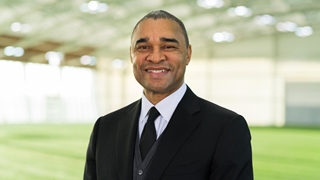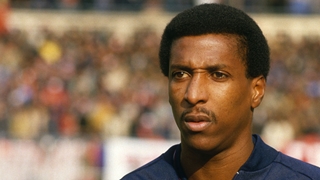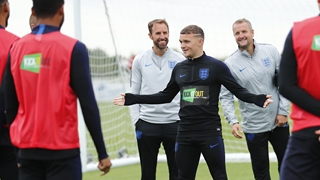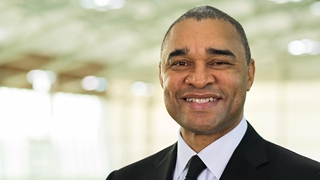
My very first interaction with Herman was in the early 1990s following my transfer from Glasgow Celtic to Chelsea.
I was invited to speak at a Community Event in south London, where fortuitously he was in attendance.
I spoke about the challenges of an elite Black player not just in football but, more specifically in the countries (England- Italy - Scotland) in the 80s and 90s.
It was an unusual career path for me as a defender but, critically how it was important to give back to my local community. l was born in Lewisham and lived there in my early childhood, which was socially a very deprived and disadvantaged area and not for the faint-hearted.
This resonated with him as he lived in Peckham a few miles away when he travelled alone as an eleven-year-old boy for 17 days from Guyana to be with his mother.
He was very complimentary about my career having played in England, Scotland and Italy and l always remember his amusing joke about his claim to fame as a famous local DJ in his teens in Peckham but, he so loved football.
He also shared his lived experiences as a beloved supporter of Manchester United on the terraces in the 70s and the common alignment of the repugnant, reprehensible abuse and intimidation he received as a supporter.
He witnessed many Black players on the pitch and was disgusted with the monkey chanting and banana throwing that my generation endured.
We met thereafter and he gave me an insight into his role at the CRE (Commission of Racial Equality) when he was appointed the first Black Executive Chairman in 1993. This was in the same year Stephen Lawrence sadly was tragically killed, which had a profound effect on me as l went to the same secondary school as Stephen, so his passing impacted me like so many.
We became friends, as he mentored and gave me much confidence to speak up about my lived experiences.
We co-founded Kick It Out the same year along with the PFA under Gordon Taylor and the activation of the Kick it Out racism campaign duly evolved thereafter.
At that time in the early 90s, communities were divided and fractured. Football was like the Wild West, the BNP and National Front had a significant visible presence on the streets, using football to embolden their recruitment drives and inside stadiums, there was much hostility and football ultimately represented what society looked and felt like then.
Black players of my generation were the unfortunate target.
l understood how passionate and relentless he was to enact change at the roots of our communities.
With his mandate, he single-handedly challenged football, its 92 Clubs and its stakeholders as the reality was that the game was in denial about race and discrimination at that time.
Over the years that followed, Herman told me about the serious threats, the bullets he received in the post and the late-night calls, threatening him and his loved ones.
This only strengthened his resolve to serve and do the right thing.
I saw him first-hand in those meetings, he was like John Wayne entering the bar in the old films like a gunslinger. The man playing the piano stops, and everyone looks at this imposing man with a huge presence and aura, supremely confident and forceful in character and posture but, his articulation, intelligence and confidence about the challenges were so powerful.
He strategically built a movement of key influencers like David Dein and David Davies, creating a plan that clubs signed up to and starting to hold them to account as they soon realised they weren’t above law and regulation.
Players were more empowered and had more confidence to speak out as there were perceptions that ‘we were the problem and should just put up with it’ which created a feeling of ‘subserviency’ across some dressing rooms.
Many players at my various clubs never fulfilled their potential and drifted out of the game as they sadly couldn’t cope with the intensity of the abuse and simultaneously competed at the top level as they were alone. I was very lucky.
He was unequivocally committed to being a change agent of the highest order, notwithstanding the magnitude of challenges over his 25 years of voluntary exemplary service to KIO.
For periods, KIO was under-resourced and l recall only a team of six staff for years but, Herman carried the organisation on his back.
Since his retirement in circa 2018, we always kept in touch, he was the single biggest influencer on me post my career when l transitioned to campaigning and activism.
We went to lunch a few months before the EUROs and l was aware he was in discomfort but, his resilience and fortitude always superseded that.
Mentally he was so alert, notwithstanding his challenges.
His supreme legacy is on several levels. The KIO model has been replicated globally which l know he was so proud of.
I say with candour, conviction and confidence after working closely with him over the last three decades that he has been the single most influential person who has impacted football and communities in racial equality and race relations.
The world of football and the Black community is indebted to Lord Herman Ouseley.
His passing on 2 October, the second day into Black History Month, is so poignant.












